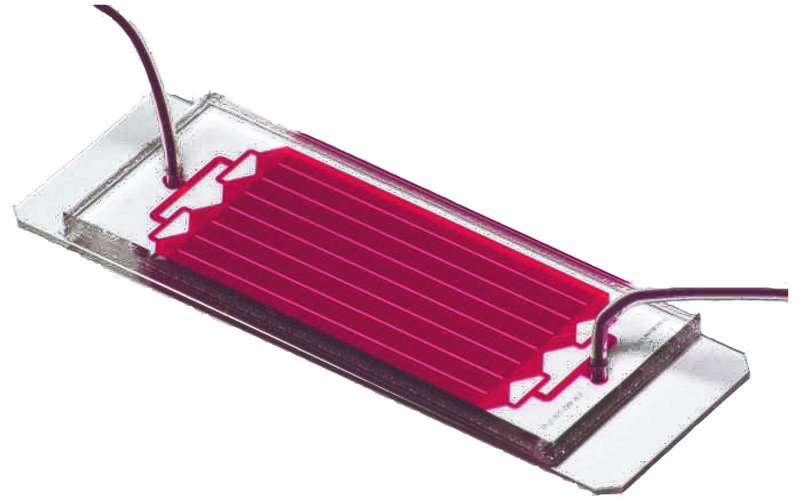BOSTON – A blood test so sensitive that it can spot a single cancer cell lurking among a billion healthy ones is moving one step closer to being available at your doctor’s office.
Boston scientists who invented the test and health care giant Johnson & Johnson will announce today that they are joining forces to bring it to market. Four big cancer centers, including Dana-Farber Cancer Institute in Boston, also will start studies using the experimental test this year.
Stray cancer cells in the blood mean that a tumor has spread or is likely to, many doctors believe. A test that can capture such cells has the potential to transform care for many types of cancer, especially breast, prostate, colon and lung.
Initially, doctors want to use the test to predict what treatments would be best for each patient’s tumor and find out quickly if they are working.
“This is like a liquid biopsy” that avoids painful tissue sampling and may give a better way to monitor patients than periodic imaging scans, said Dr. Daniel Haber, chief of Massachusetts General Hospital’s cancer center and one of the test’s inventors.
Ultimately, the test may offer a way to screen for cancer besides the mammograms, colonoscopies and other less-than-ideal methods used now.
Many people have their cancers diagnosed through needle biopsies. These often do not provide enough of a sample to determine what genes or pathways control a tumor’s growth. Or the sample may no longer be available by the time the patient gets sent to a specialist to decide what treatment to prescribe.
Doctors typically give a drug or radiation treatment and then do a CT scan two months later to look for tumor shrinkage. Some patients only live long enough to try one or two treatments, so a test that can gauge success sooner, by looking at cancer cells in the blood, could give patients more options.
“If you could find out quickly, ‘this drug is working, stay on it,’ or ‘this drug is not working, try something else,’ that would be huge,” Haber said.
The only test on the market now to find tumor cells in blood — CellSearch, made by J&J’s Veridex unit — just gives a cell count. It doesn’t capture whole cells that doctors can analyze to choose treatments.
Interest in trying to collect these cells soared in 2007, after Haber and his colleagues published a study of Mass General’s test. It is far more powerful than CellSearch and traps cells intact. It requires only a couple of teaspoons of blood and can be done repeatedly to monitor treatment or determine why a drug has stopped working and what to try next.
The test uses a microchip that resembles a lab slide covered in 78,000 tiny posts, like bristles on a hairbrush. The posts are coated with antibodies that bind to tumor cells. When blood is forced across the chip, cells ping off the posts like balls in a pinball machine. The cancer cells stick, and stains make them glow so researchers can count and capture them for study.
The test can find one cancer cell in a billion or more healthy cells, said Mehmet Toner, a Harvard University bioengineer who helped design it. Researchers know this because they spiked blood samples with cancer cells and then searched for them with the chip.
Studies have been published in the journals Nature, the New England Journal of Medicine and Science Translational Medicine. It is the most promising test of several dozen that companies and universities are rushing to develop to capture circulating tumor cells, said Bob McCormack, technology chief for Veridex.
The agreement to be announced today will have Veridex and J&J’s Ortho Biotech Oncology unit work to improve the microchip, including trying a cheaper plastic to make it practical for mass production. No price goal has been set, a company official said, but the current CellSearch test costs several hundred dollars.
Send questions/comments to the editors.



Success. Please wait for the page to reload. If the page does not reload within 5 seconds, please refresh the page.
Enter your email and password to access comments.
Hi, to comment on stories you must . This profile is in addition to your subscription and website login.
Already have a commenting profile? .
Invalid username/password.
Please check your email to confirm and complete your registration.
Only subscribers are eligible to post comments. Please subscribe or login first for digital access. Here’s why.
Use the form below to reset your password. When you've submitted your account email, we will send an email with a reset code.